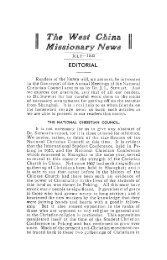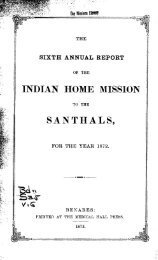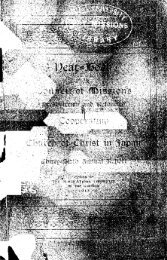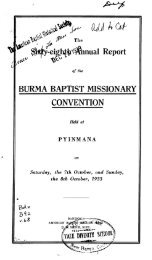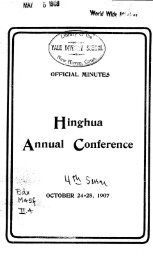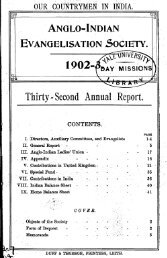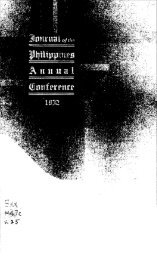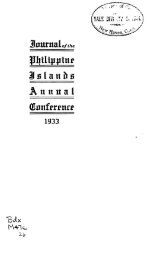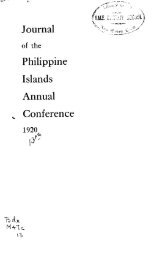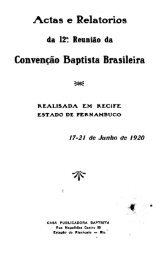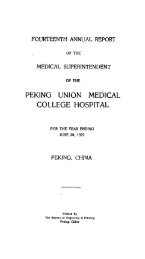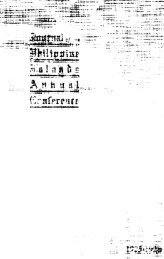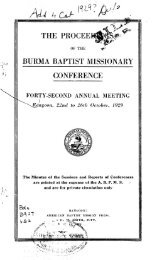China Medical Journal - Yale University Library Digital Collections
China Medical Journal - Yale University Library Digital Collections
China Medical Journal - Yale University Library Digital Collections
You also want an ePaper? Increase the reach of your titles
YUMPU automatically turns print PDFs into web optimized ePapers that Google loves.
i6 The <strong>China</strong> M edical Jo u rn a l.<br />
of all patients is made, we find that over 95% of all cases are infected.<br />
The whipworm leads all parasites in frequency, but whether or not<br />
this is pathogenic is an unsettled question. I have not been able to<br />
make out a case against it, but ascaris, ankylostoma, tsenia, clonorchus<br />
sinensis and other parasites, when present, are largely responsible for<br />
many digestive disturbances. Too much emphasis cannot be laid on<br />
the importance of animal parasites in the etiology of indigestion.<br />
Some observers have stated that the round-worms and tape-worms are<br />
not pathogenic, but the burden of proof is 011 them. Marked improvement<br />
after the canal has been rid of these worms has been too<br />
-commonly observed in my work for me to entertain any other idea<br />
than that they are important causes of trouble in the alimentary canal.<br />
Every case of indigestion should be examined for worms, and I feel<br />
sure that such a procedure would soon prove its value.<br />
In the discussion of the varieties of indigestion we have a difficult<br />
matter to deal with. The lack of autopsy work and of careful chemical<br />
-examinations of gastric contents render it difficult to treat the matter in<br />
a scientific way. We have to depend largely upon clinical observations.<br />
One of the most noteworthy things it seems to me, after nearly<br />
eleven years’ work in Korea, is the absence of two conditions so<br />
frequently met with in western lands, viz., hj^perchlorhydria with peptic<br />
ulcer, and appendicitis. I have yet to see the first case out here which<br />
I could diagnose as ulcer of the stomach. No doubt such cases exist,<br />
and some of you have probably seen them, but they are certainly not<br />
so common as in western lands. Dr. Mills, of Severance Hospital,<br />
Seoul, tells me that all the examinations of gastric contents made<br />
by him have shown much less acid than is met with in the average<br />
American or European. No doubt the lack of meat diet explains this<br />
partly, but it is also very likely that the lack of strenuosity and nervous<br />
tension in the daily life has something to do with it. If those who live<br />
the simple, unhurried and unworried life are comparatively free from<br />
hyperchlorhydria, then certainly the Korean should be almost immune !<br />
The second condition, the infrequency of which is noteworthy, is<br />
appendicitis. I was so struck with this the first few years of my<br />
practice out here that I really questioned whether the Korean possessed<br />
such an organ as an appendix ; and I recall that at the first autopsy<br />
I performed, which was done, by the way, behind locked doors and<br />
screened windows, the first thing I did w?as to ascertain the presence<br />
of this organ. In later years I have had some cases, and there are<br />
undoubtedly many cases of appendicitis that we never see, but<br />
•certainly the trouble is far less frequent than in our homeland. The



